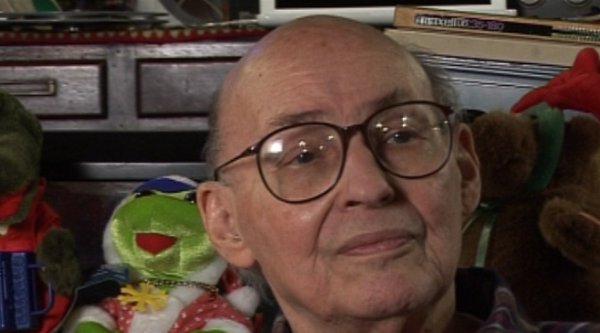NEXT STORY

John Nash solves my PhD problem
RELATED STORIES

NEXT STORY

John Nash solves my PhD problem
RELATED STORIES


|
Views | Duration | |
|---|---|---|---|
| 21. A short history of neural networks | 1579 | 02:30 | |
| 22. How I became interested in neural networks | 1 | 1322 | 01:53 |
| 23. My early methods for testing neural networks | 1129 | 02:10 | |
| 24. My PhD thesis on learning machines | 1273 | 01:06 | |
| 25. John Nash solves my PhD problem | 1945 | 01:48 | |
| 26. Why I changed from bottom-up to top-down thinking | 2 | 2650 | 02:39 |
| 27. The end of my PhD on learning machines | 1271 | 04:24 | |
| 28. My first encounter with a computer | 1 | 1088 | 01:56 |
| 29. Writing a program for Russell Kirsch's SEAC | 970 | 01:54 | |
| 30. The first timeshared computer | 938 | 01:03 |


I worked out a lot of theories about how to make a machine that tries to solve problems by generating hypotheses, and then testing them to see if they make correct... correct predictions and so forth, and this big thesis is maybe 300 or 400 pages. It first introduces a lot of ideas about how neurons could do this kind of logical reasoning, and then some shorter chapters, but more futuristic, about how to make networks that look at a number of streams of data and then try to predict what will happen next, and so forth. So I don’t even remember clearly exactly what’s in this big PhD thesis, but my impression is that because it’s never been published, and I have a copy and there’s a copy at Princeton and maybe a third copy somewhere else, no-one’s ever really looked at it and followed up any of the ideas.
Marvin Minsky (1927-2016) was one of the pioneers of the field of Artificial Intelligence, founding the MIT AI lab in 1970. He also made many contributions to the fields of mathematics, cognitive psychology, robotics, optics and computational linguistics. Since the 1950s, he had been attempting to define and explain human cognition, the ideas of which can be found in his two books, The Emotion Machine and The Society of Mind. His many inventions include the first confocal scanning microscope, the first neural network simulator (SNARC) and the first LOGO 'turtle'.
Title: My PhD thesis on learning machines
Listeners: Christopher Sykes
Christopher Sykes is a London-based television producer and director who has made a number of documentary films for BBC TV, Channel 4 and PBS.
Tags: Princeton University
Duration: 1 minute, 7 seconds
Date story recorded: 29-31 Jan 2011
Date story went live: 09 May 2011